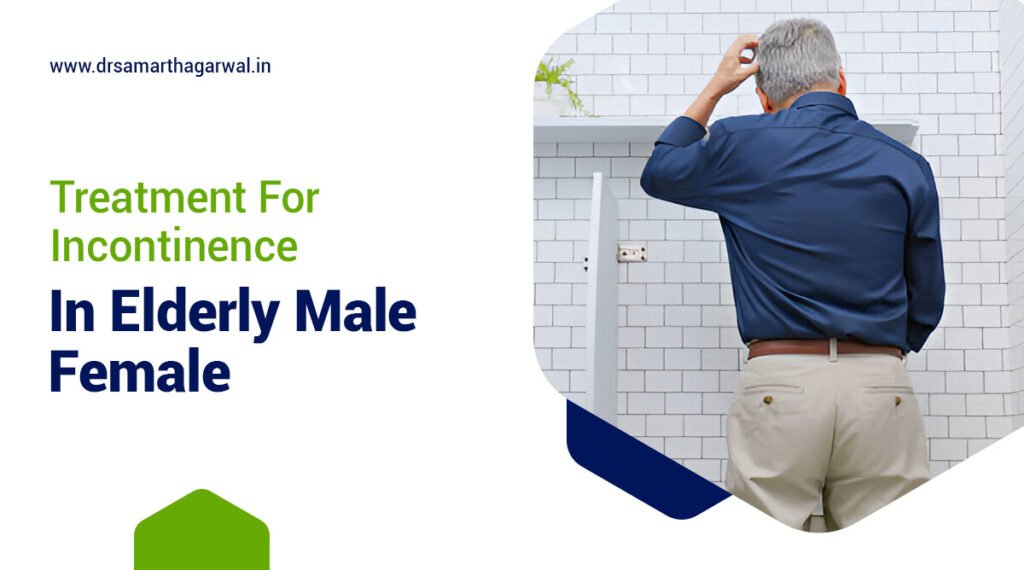Experiencing lower back pain accompanied by frequent nighttime urination can be both concerning and disruptive to daily life. These symptoms may stem from a range of underlying conditions, including urinary tract infections, kidney issues, or prostate-related problems. This article aims to explore the potential causes of these discomforts, assess their impact on overall health, and discuss the available treatment options, including effective treatments and lifestyle changes. Gaining a comprehensive understanding of these factors can empower individuals to take proactive measures toward relief and ascertain when it is necessary to seek guidance from a healthcare professional or health provider.
Why Can One Have Lower Back Pain and Frequent Urination at night?
Experiencing lower back pain and frequent urination at night, known medically as nocturia, can be distressing and may indicate underlying health issues that require attention.
Nocturia is characterized by the need to wake at night to urinate, which can disrupt sleep and lead to health consequences, including sleep disturbances, over time. Understanding the potential causes—ranging from urinary tract infections, prostate problems, to diabetes and obstructive sleep apnea—can assist in determining the appropriate medical interventions and lifestyle adjustments needed for relief and management.
What Are the Causes of Lower Back Pain and Frequent Urination at Night?
Understanding the causes of lower back pain and frequent urination at night is crucial for effective diagnosis and treatment. These symptoms can arise from various medical conditions and lifestyle factors, including urinary tract infections (UTIs), prostate problems such as benign prostatic hyperplasia, diabetes, obstructive sleep apnea, and lifestyle factors like caffeine consumption and alcohol intake.
Each of these conditions may have overlapping symptoms and varying degrees of severity, necessitating a thorough evaluation by a medical professional to identify the root cause.
Urinary Tract Infection (UTI)
A urinary tract infection (UTI) is a common condition that can lead to symptoms like lower back pain and frequent urination at night. UTIs occur when bacteria infect the urinary system, often causing discomfort such as a burning sensation during urination, abdominal pain, and an increased urgency to urinate. If left untreated, a UTI can lead to more severe complications, including chronic kidney problems or pyelonephritis.
This condition can arise from various causes, including poor hydration, sexual activity, and existing urinary tract abnormalities. Risk factors often involve age, gender, and personal hygiene practices.
Diagnosis typically begins with a urinalysis, which screens for signs of infection, followed by a urine culture to identify the specific bacteria responsible. Blood tests may also be conducted to rule out other conditions. Early detection is crucial, as timely intervention can prevent complications.
- Symptoms to watch for include:
- Increased urgency and frequency of urination
- Cloudy or strong-smelling urine
- Pelvic pain or pressure
Treatment primarily involves antibiotics, which effectively target the bacterial infection. Home care strategies such as increasing fluid intake, consuming cranberry products, practicing good hygiene, and maintaining proper sleep hygiene can support recovery and help reduce the likelihood of future infections.
Kidney Infection
Kidney infection, medically referred to as pyelonephritis, is a serious condition that can cause lower back pain and frequent urination at night.
This type of urinary tract infection affects the kidneys and may lead to severe abdominal pain, fever, and symptoms of systemic illness. Aside from the discomfort of lower back pain, individuals may experience chills, nausea, a burning sensation during urination, and potentially chronic kidney failure if left untreated. Early detection is vital to mitigate potential complications like chronic kidney failure and sepsis.
- Causes: Bacteria from the bladder or urethra often ascend to the kidneys, which may trigger an infection. Other risk factors include urinary blockages and weakened immune systems.
- Symptoms: Common signs include fever, flank pain, increased frequency of urination, and malaise.
- Diagnosis: Physicians frequently rely on blood tests and imaging techniques to ascertain the presence of infection and assess kidney function.
- Treatment: Management typically involves antibiotics to combat the infection alongside medications to relieve symptoms. Staying well-hydrated is crucial for flushing out bacteria and supporting overall kidney health.
Prostate Problems
Prostate problems, particularly benign prostatic hyperplasia (BPH), can significantly contribute to lower back pain and frequent urination at night. The prostate gland plays a crucial role in these symptoms. As the prostate gland enlarges, it may obstruct the urethra, leading to urinary symptoms such as increased urination frequency, dysuria, and discomfort in the pelvic area. Recognizing obstruction as a key factor is important. Understanding this condition is vital for appropriate management and treatment options.
Additionally, BPH and other prostate issues such as chronic nonbacterial prostatitis can also impact men’s health significantly. Symptoms often include nagging pelvic pain, difficulties in urination, and, sometimes, lower back pain, complicating the individual’s quality of life.
- Risk factors for these prostate problems may encompass age, family history, and lifestyle choices, such as diet and exercise.
- Diagnostic methods typically involve a combination of physical examinations, blood tests, and imaging studies to assess prostate health accurately.
- Effective treatment strategies vary depending on the specific diagnosis; options can include medication adjustments, dietary changes, and surgical interventions for more severe cases.
Recognizing the multifaceted nature of prostate health is essential for proactive management.
Bladder Problems
Bladder problems can lead to symptoms like lower back pain and frequent urination at night, frequently presenting as nocturnal polyuria or incontinence. Conditions such as bladder stones or infections may cause discomfort, including a burning sensation during urination, frequent urges to void, and pain during urination. Understanding the various bladder conditions is essential for determining effective treatments.
These issues can arise from diverse underlying causes, such as bacterial infections, dietary factors, or dehydration. Symptoms frequently associated with these conditions often include:
- Fluctuating urinary patterns
- Pain during voiding
- Unexplained abdominal discomfort
It is crucial to address bladder health proactively, as early intervention can lead to more effective management strategies. Integrating adequate hydration and balanced fluid intake into one’s lifestyle not only aids in flushing out harmful bacteria but also can prevent the formation of bladder stones. Making conscious lifestyle adjustments, such as limiting caffeine and alcohol, can further enhance bladder function and overall well-being.
Diabetes
Diabetes can significantly affect urinary health, often resulting in elevated thirst and frequent urination at night, known as nocturia. High blood sugar levels can lead to osmotic diuresis, prompting increased urination frequency and potential health consequences if not managed properly. Understanding the relationship between diabetes and urinary symptoms is crucial for effective diabetes management.
Diabetes introduces complex challenges that extend beyond glucose control, impacting various bodily functions and potentially affecting bladder capacity. When blood sugar levels soar, the kidneys work harder to filter and absorb excess glucose, occasionally resulting in increased urine production. This can lead to various urinary symptoms, including:
- Increased frequency of urination during the day
- Urgency to urinate
- Nighttime urination, disrupting sleep
- Possibility of urinary tract infections
Diagnosis encompasses blood glucose testing and monitoring urinary patterns, often performed by a medical professional. Effective management strategies require a holistic approach that includes:
- Regular blood sugar monitoring
- Adopting a balanced diet and exercising
- Staying hydrated, but managing fluid intake wisely to avoid excessive urination
Consultation with a healthcare provider is essential for personalized guidance and regular check-ups to prevent complications associated with urinary health, considering the patient’s medical history and urination habits.
Pregnancy
Pregnancy can lead to lower back pain and frequent urination due to hormonal changes and pressure on the bladder as the fetus grows, affecting bladder capacity and urination frequency. These changes can reduce bladder capacity and increase the frequency of nighttime urination, known as nocturnal polyuria, which can disrupt sleep patterns.
Understanding these changes is vital for managing discomfort and maintaining overall health during pregnancy.
As the body adapts to nurture new life, the shift in hormonal balance affects various systems, resulting in physical symptoms that can be quite bothersome, sometimes necessitating a physical exam. Commonly, the increase in progesterone relaxes pelvic muscles, contributing to urinary incontinence and pain in the lower back.
To alleviate these discomforts, expectant mothers can adopt a range of coping strategies:
- Regular Exercise: Gentle activities like prenatal yoga can strengthen the back and pelvic floor muscles, benefiting those with conditions like a herniated disc.
- Pillows for Support: Using supportive pillows while sleeping or sitting can improve posture and reduce strain on the lower back.
- Staying Hydrated: Drinking adequate water throughout the day can maintain normal bladder function and minimize nighttime disruptions.
- Heat Therapy: Applying a warm compress to the lower back can relieve muscle tension.
Implementing these adjustments not only eases the symptoms but also contributes to a more comfortable pregnancy experience, helping manage back pain and Nocturia.
How Does Lower Back Pain and Frequent Urination at Night Affect Your Health?
Lower back pain and frequent urination at night can have profound effects on overall health and quality of life. These conditions can lead to significant sleep disturbances, increased fatigue, dysuria, and emotional stress, which may ultimately affect daily functioning and overall well-being.
Seeking guidance from a health provider, especially for a urologic patient, can aid in understanding the implications and establishing effective management strategies.
What Are the Treatment Options for Lower Back Pain and Frequent Urination at Night?
There are various treatment options available for managing lower back pain and frequent urination at night, tailored to the underlying causes of these symptoms, such as diabetes or benign prostatic hyperplasia.
Effective treatments may include medication adjustments, lifestyle changes, and home care strategies that promote overall health and wellness, including managing fluid deprivation and avoiding caffeine and alcohol.
Collaborating with a healthcare provider is essential for developing a personalized treatment plan that addresses specific needs.
When Should You See a Doctor for Lower Back Pain and Frequent Urination at Night?
Knowing when to see a doctor for lower back pain and frequent urination at night is essential for maintaining health and well-being. If symptoms are persistent, severe, or accompanied by other concerning symptoms such as fever, blood in urine, or significant pain, prompt medical attention is necessary.
Keeping a symptom log can help communicate effectively with your health provider about any changes or concerns.

Contact Dr. Samarth Agarwal if you have any questions or concerns about your Urinary health!






